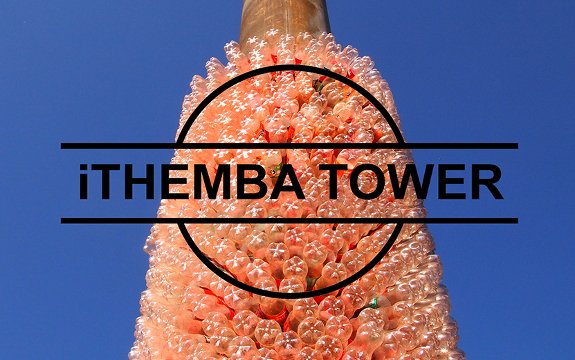5000 Water Bottles Used to Promote Recycling

 Plastic water bottles are choking the waterways and killing wildlife in our oceans around the world. Perhaps you’ve heard about the Texas-sized plastic water bottle island floating just off the coast of California? The problem with plastic is that unless it is highly compressed, it never fully disintegrates.
Plastic water bottles are choking the waterways and killing wildlife in our oceans around the world. Perhaps you’ve heard about the Texas-sized plastic water bottle island floating just off the coast of California? The problem with plastic is that unless it is highly compressed, it never fully disintegrates.
A 5000-plastic water bottle art installation in South Africa is helping to promote water bottle recycling in order to allay the problem of toxic plastic trash.
Nearly 100 billion pounds of plastic are produced in the US every year, and the numbers around the world are increasing as countries adopt the ‘consumer’ lifestyle that North America is notorious for. Meanwhile, the government of Ghana recently declared a ‘war on plastics’ and officials throughout South Africa are always looking for ways to eliminate plastic trash.
As Natural Society previously reported, plastic water bottles are full of:
- PETE or PET (Polyethylene Terephthalate)
- HDPE (High Density Polyethylene)
- V or PVC (Vinyl)
- LDPE (Low Density Polyethylene)
- PP (Polypropylene)
- Bisphenol – A (BPA)
- PS (Polystyrene)
These toxins cause havoc within the endocrine system, making it impossible for your body to regulate hormone production, hyper-activity, reproductive health issues, and a number of other diseases. And these disease exist with the plastic in the ocean, too.
Much of this pollution is actually in the form of small, ‘confetti-sized’ particles. These small pollution particles are being consumed by fish and eventually travel up the food chain – causing potentially serious consequences for the health of wildlife and humans alike.
Help Spread the Word – One Way or Another
The South African artist keeping these toxic products from our waterways while encouraging others to do the same first came up with the idea when he couldn’t afford to purchase oil paints for his art projects. His plastic art now resembles artworks, which were created with the paint he once yearned for. His latest permanent installation in Johannesburg features a 30 meter-high creation made with over 5000 water bottles, called the ‘iThemba Tower.’
The bottles are collected from the local informal waste collectors known in the streets of South Africa as ‘Zama Zamas.’ The project involves local schools, too, contributing to a raised awareness about recycling among kids in upcoming generations.
With plastic waste becoming a global epidemic, creative projects like this which encourage the recycling and reduction of plastic waste are imperative.
